Thesis Translation: Why? How? When?
Why thesis editing and translation is something you need to think about now.

If you are a graduate student or a postdoctoral fellow at a university outside of the English-speaking world, chances are that you have spent some time thinking about when and whether to translate your research into English. In the humanities and the sciences alike, English is the dominant language of academic scholarship, and few would doubt that there are enormous advantages to producing journal articles and books in English. What younger scholars-in-training increasingly realize is that they also have good reasons to consider taking their first scholarly steps in English, even before their first academic article is published. Indeed, with wise use of thesis translation or thesis editing services, graduate students can get a head start in some very important ways.


Why produce a thesis in English?
Unlike a book or a journal article, a thesis or dissertation only officially needs to be accepted by your university department or your committee. This prevents some graduate students from ‘thinking big’ about the reach of their thesis or dissertation. Many universities outside of the English-speaking world offer the option of submitting a thesis in English, yet some graduate students don’t consider the option seriously. Here are a few reasons why it is worth doing so:
- Wider audience for your thesis itself: While a thesis is not officially a ‘publication’ in the way a book or journal article are, in the 21st century your thesis will be as widely accessible to scholars globally as many academic journals, through ProQuest and other electronic repositories. Scholars looking for the latest research in your field will be much more likely to find – and use – your work if it is available to them online in a language that they can read.
- Future applications: If you are writing an M.A. thesis, chances are that you are thinking about applying to doctoral programs. If you are finishing a doctoral dissertation, you might be thinking about post-doctoral fellowships. Whatever your next step, the application process is likely to require submission of a writing sample. If your best research is already in English, you will be able to use it as part of your application for most programs worldwide.
- Future publication: Of course, most young scholars aspire to eventually publish their research in book or article form. If your thesis is in English, you will have a much wider range of publishers and journals to choose from. And once you are published, your work will be accessible to a wider range of readers.

Thesis translation: How and When?
Convinced? If so, the next question is when and how to go about translating articles into English. There are three main options:
- Thesis Editing: write it in English, then get it edited . If you have good English, you might decide to write your thesis or dissertation in English from the outset. If your supervisor and department give their blessing, this option might be the most efficient. Once your work is completed, you can employ thesis editing services to ensure it has the highest level of polish and clarity.
- Thesis translation before submission . Perhaps you are most comfortable writing in your mother tongue, but still want the advantages of a thesis in English. If so, you can employ thesis translation services as you go along – perhaps on a chapter-by-chapter basis. If your university gives permission, you may be able to submit the English translation as the official version of your thesis.
- Translation after acceptance . Even if your thesis needs to be submitted to your university in another language, it is never too late to produce an English version. When translating an already-accepted thesis into English, you might choose to think about it already as a book manuscript draft (or drafts of a series of articles). In fact, you might even want to edit and alter the original version before sending it for translation, in order to tailor it to your desired publishing house or journals.
In short: A scholarly output in English can be of great benefit, even at the earliest stages of an academic career. And there are many ways to make it happen!
- Our Mission and Values
- Journals and Publishers
- Research Authorities
- Foundations and Museums
- Language Experts
- Translation
- Academic Writing Coaching
- Academic Review
- Book Proposal Assistance
- Journal Finder
- Table and Graph Formatting
- Manuscript Preparation
- Grant Services
- Post-Publication Services
- Grant Proposal Assistance
- Publication Support
- Our Seven Step Recipe For Success
- Pricing & Turnaround
- Success Story- Grant Proposal Assistance
- Success Story- Translation
- Success Story: Editing
- Success Story: Publication Support
- Success Story- Junior Scholar
- 'Publication Success' Interview Series: Previous Recordings
- FAQ: People
- FAQ: Projects
- FAQ: Timeline and Pricing
- Author Resources
- Newsletter Archive
- Upcoming Live Events

Chinese Dissertation Translation Services
Welcome to our comprehensive dissertation translation services page. At JinYu translation, we understand the importance of accurate and reliable translation services for researchers, academics, and institutions worldwide. Whether you’re looking to share your groundbreaking research with a global audience or need assistance navigating linguistic barriers in academia, we’re here to help. In this section, we provide a detailed overview of our dissertation translation services, covering various aspects such as types of translation, useful examples, translation techniques, pricing, importance, and industries that benefit from these services. Explore our offerings to learn how we can assist you in effectively communicating your research across languages and cultures.

Why Choose Us
Professionalism.
✓ Experienced Team ✓ Specialized Expertise ✓ Dedicated Support
✓ Timely Delivery ✓ Streamlined Process ✓ Responsive Communication
Reliability
✓ Trusted Reputation ✓ Confidentiality Assurance ✓ Customer Satisfaction Guarantee
Best Legal Document Translator
1. types of dissertation translation.
Dissertation translation involves converting scholarly works from one language to another, ensuring accuracy, clarity, and cultural relevance. At Jinyu translation, we offer a range of dissertation translation services tailored to meet the diverse needs of researchers, academics, and institutions worldwide. Here are the types of dissertation
- Full Dissertation Translation: This comprehensive service involves translating the entire dissertation, including text, tables, figures, and references, from the original language into the target language. Our experienced translators ensure that the translation accurately reflects the content and structure of the original document.
- Abstract Translation: We offer specialized translation of dissertation abstracts, summarizing the key findings, methodology, and significance of the research. Abstract translations are crucial for disseminating research to international audiences and promoting academic visibility.
- Chapter-by-Chapter Translation: Some clients prefer to translate their dissertations chapter by chapter, allowing for a more manageable and focused approach. Our translators work diligently to maintain consistency in terminology and style across chapters while adhering to academic conventions.
- Literature Review Translation: Translating the literature review section of a dissertation requires meticulous attention to detail and a deep understanding of academic discourse. Our translators ensure that references to existing research are accurately translated, preserving the integrity of the scholarly discussion.
- Methodology Translation: Methodology sections often contain technical terms and specialized terminology specific to the research field. Our translators possess expertise in various academic disciplines and can accurately translate the methodology section while ensuring clarity and precision.
- Results and Discussion Translation: Translating results and discussion sections requires conveying complex data and analysis accurately while maintaining coherence and clarity. Our translators excel at communicating research findings in a way that resonates with readers in the target language.
- Citation and Reference Translation: Accurate translation of citations and references is essential for maintaining academic integrity and acknowledging the contributions of other scholars. Our translators ensure that all citations and references are translated correctly and formatted according to academic standards.
- Formatting and Layout Translation: In addition to translating the text, we offer formatting and layout translation services to ensure that the translated dissertation mirrors the original document in terms of structure, formatting, and visual presentation.
- Proofreading and Editing: Our proofreading and editing services ensure that the translated dissertation is free from errors in grammar, punctuation, and syntax. We conduct thorough quality checks to deliver polished and professional translations that meet the highest academic standards.

2. Jinyu translation’s dissertation translation object
Undergraduate, master’s and doctoral students, professors and research institute researchers from various universities at home and abroad:
- Domestic MBA students from Sino-foreign cooperative education need to complete their thesis in English when they graduate.
- We can help graduates with master’s and doctoral degrees complete the translation of thesis abstracts.
- When studying abroad, the other school often requires you to submit previously completed papers.
- Promotion to a professional title requires papers to be published in foreign publications.
- Course Writing for foreign students, etc
3. Useful Examples of Dissertation Translation
Below are examples of English to Chinese Dissertation translations
Research on the Ecological Environmental Impact Assessment of Sustainable Development of Water Conservancy Engineering 《水利工程可持续发展的生态环境影响评价研究》 Tweet
The Impact of School-Family Cooperation on Students’ Academic Performance: A Study 《学校家庭合作对学生学习成绩的影响研究》 Tweet
Research and Application of AI-Based Medical Imaging Diagnosis Systems 《基于人工智能的医学影像诊断系统研究与应用》 Tweet
Research on Green Space Planning and Design in Urban Ecological Construction 《城市生态建设中绿色空间规划与设计研究》 Tweet
Research on Cross-Cultural Management Strategies of Multinational Corporations 《跨国公司跨文化管理策略研究》 Tweet
Research on Rural Community Development and Social Capital in China 《中国农村社区建设与社会资本研究》 Tweet
A Study of Language Switching Strategies in Chinese-English Translation 《汉英翻译中语言转换策略研究》 Tweet
Research on the Reform of China’s Socialist Political System 《中国特色社会主义政治制度改革研究》 Tweet
Study on Adolescent Mental Health and Internet Use Behavior 《青少年心理健康与网络使用行为研究》 Tweet
Research on Ancient Chinese Overseas Trade and Cultural Exchange 《中国古代海外贸易与文化交流研究》 Tweet
These examples further demonstrate our expertise in translating dissertations across a wide range of academic disciplines from Chinese to English. Whatever your research area may be, you can trust us to deliver accurate, nuanced, and impactful translations that contribute to academic discourse and cross-cultural exchange.

4. Translation Techniques of Dissertation Translation
Translating dissertations from one language to another requires a nuanced approach that goes beyond mere linguistic proficiency. Here are some essential translation techniques employed in dissertation translation to ensure accuracy, clarity, and fidelity to the original text:
- Terminology Consistency: Ensuring consistency in terminology throughout the dissertation is paramount. Translators establish a glossary of terms and adhere to it consistently to maintain coherence and precision in the translation.
- Contextual Understanding: Understanding the broader context of the dissertation, including the research topic, methodology, and theoretical framework, is essential. Translators delve into the subject matter to grasp the intended meaning behind the text and convey it accurately in the target language.
- Cultural Adaptation: Adapting the translation to suit the cultural norms and expectations of the target audience is crucial. Translators consider cultural nuances, idiomatic expressions, and rhetorical conventions to ensure that the translation resonates with readers in the target language.
- Academic Style and Tone: Maintaining the academic style and tone of the original dissertation is essential. Translators replicate the formal register, scholarly conventions, and rhetorical strategies characteristic of academic writing while ensuring readability and coherence in the translation.
- Structural Equivalence: Preserving the structural equivalence between the original and translated text enhances readability and comprehension. Translators align the organization, flow, and logical structure of the dissertation to mirror that of the original document.
- Specialized Knowledge: Translating dissertations often requires expertise in specific academic disciplines and subject areas. Translators with background knowledge in the dissertation’s field of study can accurately convey technical concepts, terminology, and research findings.
- Citation and Reference Accuracy: Ensuring accuracy in translating citations, references, and bibliographic information is crucial for maintaining academic integrity. Translators verify the accuracy of cited sources and adhere to citation styles and formatting conventions used in the target language.
- Proofreading and Editing: Thorough proofreading and editing are essential to identify and correct errors in grammar, syntax, punctuation, and spelling. Translators review the translated dissertation multiple times to ensure linguistic accuracy and coherence before finalizing the text.
- Client Collaboration and Feedback: Collaboration with clients and seeking feedback throughout the translation process enhance the quality and accuracy of the final product. Translators engage with clients to clarify ambiguities, address concerns, and incorporate revisions to meet the client’s expectations.
- Quality Assurance Measures: Implementing quality assurance measures, such as peer review, crosschecking, and quality control checks, helps maintain the overall quality and consistency of the translation. Translators adhere to strict quality standards to deliver translations that meet the highest academic standards.
By employing these translation techniques, translators can effectively convey the complex content and scholarly rigor of dissertations in the target language, facilitating cross-cultural communication and knowledge dissemination in academia.
5. International Dissertation Translation
Jinyu Dissertation Translation stands as your premier choice for comprehensive dissertation translation services, catering to global scholars seeking precise and dependable translations of academic manuscripts. Our team of native-speaking translators boasts profound expertise not only in linguistic nuances but also in the academic frameworks and disciplinary terminologies pertinent to various fields of study. We understand the critical importance of upholding consistency in academic terminology while navigating the intricate cultural and disciplinary landscapes inherent in diverse research contexts. This dedication ensures that our clients receive translations that not only meet the highest standards of linguistic accuracy but also seamlessly align with the academic requirements of their respective disciplines.
In addition to our linguistic proficiency, our commitment to dissertation translation is fortified by a collaborative ethos. We collaborate closely with subject matter experts and scholars familiar with the academic disciplines under translation to validate and refine the accuracy of our translations. This collaborative endeavor, combined with our rigorous research methodologies and quality assurance protocols, positions us as a trusted partner for scholars navigating cross-cultural academic exchanges, publishing endeavors, and research dissemination. At Jinyu Dissertation Translation, our mission is to facilitate effective communication across academic contexts, providing scholars with the confidence that their research is accurately and reliably translated for a global audience.

6. Price System of Dissertation Translation
The price system for dissertation translation is usually affected by multiple factors. Considering the professionalism and complexity of translation, Jinyu Translation has developed a flexible price system to ensure that customers receive fair prices while receiving high-quality services.
① Price per Word: Our standard pricing for dissertation translation is based on a per-word rate. The rate varies depending on factors such as language pair, subject matter complexity, and turnaround time.
- Standard Rate: $0.05 -$0.10 per word
- Specialized Fields (e.g., technical, legal, medical): $0.10 -$0.15 per word
- Urgent Turnaround (2448 hours): Additional 15% -25% surcharge
② Minimum Fee: We have a minimum fee requirement to ensure that smaller projects receive fair compensation for our services.
- Minimum Fee: $40 -$80 (depending on the language pair and scope of work)
③ Discounts and Offers: We may offer discounts for larger projects, repeat clients, or bundled services.
- Volume Discount: 5% -15% discount for projects exceeding 10,000 words
- Repeat Client Discount: 5% discount on subsequent projects for returning clients
- Bundled Services: Discounted rates for additional services such as proofreading or formatting when bundled with translation services
④ Additional Services: We provide optional additional services that may incur additional charges.
- Proofreading and Editing: $0.01 -$0.04 per word
- Formatting: $20 -$40 per hour
- Notarization or Certification: $20 -$40 per document
Customized Quotes: For accurate pricing, we offer free consultations and customized quotes based on the specific requirements of each project. Factors such as document length, complexity, language pair, and additional services needed are taken into consideration when determining the final price.
Please note that the figures provided above are examples and may vary depending on the specific details of your dissertation translation project. Contact us today for a personalized quote tailored to your needs.
Frequently Asked Questions (FAQ) about Financial Translation Services
Q:What is dissertation translation?
A:Dissertation translation involves translating academic dissertations from one language to another while maintaining accuracy, clarity, and fidelity to the original text. It enables scholars to share their research findings with a global audience and facilitates cross-cultural academic exchange
Q:How does Jinyu Translation ensure the accuracy of dissertation translations?
A:Jinyu Translation employs native-speaking translators with expertise in academic disciplines and linguistic proficiency in both the source and target languages. Our translators adhere to rigorous quality assurance processes, including thorough proofreading and editing, to ensure accuracy and consistency in translations.
Q:Can Jinyu Translation handle dissertations in specialized fields?
A:Yes, Jinyu Translation specializes in translating dissertations across a wide range of academic fields, including but not limited to sciences, humanities, social sciences, engineering, business, and law. Our team includes subject matter experts who are proficient in specialized terminology and concepts relevant to diverse academic disciplines.
Q:How do I request a quote for dissertation translation services from Jinyu Translation?
A:To request a quote for dissertation translation services from Jinyu Translation, simply contact us through our website or email with details about your project, including the language pair, word count, subject matter, and any specific requirements. We will provide you with a customized quote based on your needs.
Q:Can Jinyu Translation handle urgent dissertation translation projects?
A:Yes, Jinyu Translation understands the importance of meeting deadlines for dissertation translation projects. We offer expedited services for urgent projects and can accommodate tight turnaround times while maintaining the highest standards of accuracy and quality.
Q:What measures does Jinyu Translation take to ensure confidentiality?
A:Jinyu Translation takes confidentiality and data security seriously. We have strict privacy policies in place to protect the confidentiality of client documents and personal information. Our translators adhere to non-disclosure agreements, and we use secure file transfer methods to safeguard sensitive data.
Purdue Online Writing Lab Purdue OWL® College of Liberal Arts
Quoting and Translating

Welcome to the Purdue OWL
This page is brought to you by the OWL at Purdue University. When printing this page, you must include the entire legal notice.
Copyright ©1995-2018 by The Writing Lab & The OWL at Purdue and Purdue University. All rights reserved. This material may not be published, reproduced, broadcast, rewritten, or redistributed without permission. Use of this site constitutes acceptance of our terms and conditions of fair use.
Foreign Words and Phrases in an English Texts
In your research, you might find that certain key concepts important to your work do not have a direct English equivalent. In this case, keep the term in the foreign language and italicize it:
After introducing the key term, you can explain to your audience the meaning of the term and how it might compare and contrast with similar terms they know. Using the word without explanation (e.g. anguish instead of toska ) can be seen as misrepresenting the key term, because it does not invoke the other layers of meaning.
Popular Foreign Words
There are a number of commonly used foreign words, abbreviations and phrases that are part of American English: ad hoc, cliché, concerto, genre, sic, versus. Such popular words can be found in a dictionary and are considered a part of the English language. There is no need to translate them, unless they are used by the author in an innovative and unusual ways. In such case, you can provide more context for them.
Quotations Entirely in a Non-English Language
If you are quoting a whole sentence, you do not have to italicize the non-English words.
Keeping the whole sentence untranslated is a strategy that you could use when you are expecting your readers to know the language to some degree, or if you decide that the readers would benefit from reading and appreciating the original text. This is also the case, when the sentence might not be recognizable as an English translation, but is very well known in the original version.
Some texts that you are using might already contain specific formatting in a non-English language. In the example below, part of the quotation was written in italics. Preserve that original formatting in your quotation.
In this quotation, Anzaldúa provides a direct translation of the saying she heard as a child. Note that the saying she heard in Spanish is kept in original (just as she heard it and as she wrote it – in italics ). She also provided a translation of the saying to make it understandable for the readers who might not understand it otherwise.
English and Comparative Literary Studies
Ma in literary translation studies dissertation.
All students doing the MA in Literary Translation Studies Studies are required to complete a dissertation of approximately 16,000 words . The MA dissertation offers students the chance to undertake and complete one of two forms of sustained research project: either a) a dissertation of the more conventional variety, where the student undertakes research into an area of translation theory and practice and argues a thesis, supporting it with evidence or b) a literary translation accompanied by an extended piece of critical writing (a translation commentary).
The dissertation represents a substantial piece of work, and you should be aware of the fact that it will require significant input from you throughout the year. You should start thinking about the general area in which you would like to do your research from the beginning of the academic year and discuss it with the MALTS Convenor (and, where appropriate, with other members of staff) as soon as possible, since you will be expected to submit a dissertation proposal to the MALTS Convenor ([email protected]) by the end of Week 9 in Term 1. Students who opt to do a dissertation in the form of a literary translation accompanied by an extended commentary should begin to identify an appropriate source text or texts at an early stage. Depending on the language from which you work, source texts may be difficult to access; for this reason, you should plan ahead to allow time for delivery/access.
If the student opts for b) then the translation should be a minimum of 5000 and a maximum of 6000 words (which is approximately one-third of the total length of the dissertation), with the commentary constituting the bulk of the dissertation length at a minimum of 10,000 and a maximum of 11,000 words. Students who wish to translate poetry may agree a different weighting of translation and commentary with their supervisor(s). The translation should be into a language that can be read by the dissertation supervisor(s). This will normally mean that the translation will be into English. The student should include a copy of the source text as an appendix to the completed translation with commentary, clearly marking the appendix as such. Please note that the source text does not count towards the length of the dissertation.
There will be a compulsory workshop on the translation with commentary in Term 1. Please note that the commentary, for the purposes of the MALTS dissertation, is not a series of notes or annotations to a text, nor a chronological narrative of translating a text, rather it should do the following: contain an argument or a set of arguments that are illustrated by the translation; demonstrate the theoretically informed reflection that lies behind the creation of a translation product; address relevant issues of translation theory and practice. The link between the translation and the commentary, i.e. how far the translation bears out what is said in the commentary, will be central to the success of this piece of work. You should therefore select your source text or texts with a particular research focus in mind, rather than selecting a source text at random.
The document ' How to write a translation commentary ’ sets out the expectations for this type of dissertation.
Writing the dissertation proposal (Term 1)
Only projects deemed viable will be allowed to proceed, so it is important to get the proposal right. To be accepted, a proposal should • be intellectually viable; • be achievable within the stipulated time and word limit; • be feasible given the resources; • fall within the areas of expertise of members of academic staff.
See an example of a successful proposal for dissertation type a) and b). Proposals should be between 300 and 500 words in length and include an initial bibliography.
In addition, it is important that the content of your dissertation does not have a significant overlap with any of the essays you submit for your option modules.
To help you write a strong proposal, the English Department will be offering a series of workshops in the Autumn Term, and you will be expected to attend these. Time and place will be confirmed at the start of the academic year.
As you begin work on your proposal during Term 1, you will need to speak to members of academic staff with an interest in the area you wish to work in. All members of staff keep regular office hours during the term, and you should speak to several of them. It is your responsibility to seek them out. Use your contact with them to present and discuss your ideas. Listen to their advice and suggestions, read the books or articles they may point you to, and incorporate what is appropriate into your proposal. As you discuss your project, you will quickly pick up which aspects are worth pursuing and which are not. This is part of the research process. If you would like advice on whom to approach, speak to the MALTS Convenor. Remember when you submit your proposal to mention the names of staff with whom you have spoken.
You will be required to submit your proposal to the MALTS Convenor by the end of Week 9 in Term 1 , shortly before the winter holiday therefore. The MALTS Convenor will consider all applications and assign a supervisor for each successful proposal. You will be notified of decisions by the first week of Term 2. If your proposal has been declined, the MALTS Convenor will meet with you and explain the reasons for the decision, and provide advice and support on reworking the proposal into an acceptable one. It is expected that most proposals submitted by students who have attended all the workshops will be accepted.
Writing the dissertation progress report (Term 2)
Students must begin work on their dissertation research in Term 2. It can take time to work out exactly how to focus your project and decide on what you need to look at and read, so it’s important to start early. In Week 9 of Term 2 you must submit a Progress Report to the MALTS Convenor ([email protected]), copying in the Postgraduate Programmes Officer ([email protected]). The report consists of the following:
• Dissertation Progress Report form • title and chapter breakdown • an abstract of 1000 words • a bibliography.
Progress reports will be reviewed by the MALTS Convenor. If there are concerns about progress, the MALTS Convenor will contact you.
Research, writing and contact with your supervisor (Terms 2 and 3)
You can expect to meet with your supervisor for an initial supervision within the first two weeks of Term 2 and again in Week 8 or 9 shortly before submission of the dissertation progress report. You can also expect to meet with your supervisor three times in Term 3. Supervisions will generally be 45-60 minutes in length, although Term 2 supervisions may well be shorter than this. Your supervisor will read one rough draft of your dissertation, which must be sent by the end of Term 3. You are welcome to contact your supervisor by e-mail. As with all the department's staff, you can usually expect a supervisor to respond within about 3 working days (excluding weekends) if your query is straightforward. For more complex requests, supervisors will need more time to respond and you need to keep in mind that an e-mail exchange is no substitute for a face-to-face meeting. Face-to-face supervision of dissertations concludes at the end of term 3. Over the summer months of July and August, when staff undertake their own research activities, e-mail contact is at the supervisor's discretion and it will very likely take longer for them to respond to any message you send.
Submission (Summer)
The following reminders may be useful:
- You must be consistent in the style convention used (preferably either MLA, MHRA, Chicago or Harvard). Note that Harvard is the standard referencing style for scholarly work in Translation Studies.
- Footnotes/Endnotes are included in the final word count; the 'Bibliography' is not included in the final word count
- An abstract is not required in the final submission
- A margin of up to 10% over or under length is allowed, but dissertations that are between 10-24% over-length will incur a penalty of 3 marks
- Work that is more than 25% over-length will be refused
Academic Translation Service

The global importance of academic translation
All academic disciplines are constantly changing, with research and new ideas being developed on a daily basis. It is important that any contribution to the body of academic knowledge already available in any discipline is shared with academic peers around the world and for this to be done effectively, quality translation of academic documents is key. Linguation has the necessary experience of providing successful academic translations in a vast range of academic fields. We are dedicated to providing the top-quality translations of your theses, dissertations, articles for publication, textbooks, abstracts and conference materials, including presentations and hand-outs. Linguation offers numerous language combinations for the translation of academic documents, including into and from minority languages.
An abstract is a short summary of research questions and results of the work, is at the very beginning of a scientific work and is usually only about half a page long. Some papers provide this in several languages at the same time, so that scientists from all over the world can quickly identify whether the work is relevant to them. When translating, it is important to ensure that the text is as understandable as possible without violating scientific standards.
Extended Abstract
An extended abstract represents a scientific work somewhat more precisely than a normal abstract and usually comprises 1 - 2 pages. Research questions, methods and results can be explained here in somewhat more detail. This type of abstract is often required for international conferences and symposia and therefore often has to be translated into different languages.
- Proofreading
If you study at a foreign university, you often write your thesis there in the national language - an additional challenge, because academic language requires precise formulations and a high level of language skills. That is why it is extremely important to have your work professionally proofread by a native speaker in order to correct structural, grammatical and semantic errors.
The translation of all kinds of theses is mostly relevant after passing. Excellent work with top grades in particular is then often requested in translation so that it can be made accessible to the international scientific audience (SSCI, SCI, AHCI, SCIE). The translation of master's theses and especially doctoral theses requires a high level of scientific and linguistic knowledge on the part of the translator and should therefore only be left to highly qualified people. Translation errors in scientific work can have serious consequences for further research in the respective field.
Linguation provides specialist translators in your specific academic discipline
At Linguation we appreciate how important it is to allocate the most appropriate native speaker to your academic document translation. We will assign a translator who has the relevant academic background and expertise to provide you with a top-quality translation of your academic text. Our professionals are up to speed with the relevant subject matter and will use the correct academic terminology and academic writing conventions in your translated document. Linguation has experienced translators in numerous academic areas, including physical sciences, medicine, social sciences, humanities, engineering, law and economics. We have established a work history with universities, private and public research centers and individuals. Let Linguation support you to effectively sharing your academic findings and contributing to the existing global knowledge in your field.
Literary devices that are necessary in conveying the correct message
It is imperative that the translation of academic writing conveys the original intended message stated in your document. At Linguation, our experts have the linguistic capabilities and the associated mastery of the target language to ensure an accurate translation. They understand that literary devices, such as tone, have a tremendous impact on the overall expression towards a specific target audience. Furthermore, our knowledgeable experts have the necessary experience to perform any type of academic translation. No matter the difficulty of a certain text, our specialists will always cater to the requirements of the industry and exceed all your expectations. Linguation will always ensure that your translation is fit for its purpose and leave a lasting impression with your audience.
Linguation has a stringent quality assurance process
With specialized translations it is vital that the translator understands the subject matter and key concepts to ensure an accurate translation. Linguation will always allocate a native speaker with the appropriate knowledge of specific subject matter to assist in the process of your academic translation. Moreover, our translators are well-versed with new ideas and current research findings in their relevant discipline. At Linguation we go one step further to ensure a flawless translation. Our quality assurance procedure involves a second expert professional. This second expert translator will proofread your translated academic document to check for errors and misconceptions. Only after this stringent process will your completed translation be delivered to you by, or before, the agreed delivery date.
Simple and fast academic translations
When translating diplomas or master theses, dissertations, technical articles or entire books, we pay close attention to academic writing conventions and guarantee you the punctual delivery of your translated documents. Linguation offers its academic translation services in many fields, including medicine, social sciences, humanities, engineering, law and economics, with the aim of providing a translation service of the highest academic quality.
Individualized calculations adjusted to specific translations
The prices of every translation can vary greatly depending on the specific industry. At Linguation, we will provide a personalized quote for the services you require. The calculations will be based on a few key factors and offer a fair price that is agreeable with both parties. Our experts will evaluate the document for: the level of difficulty in translating the text, the overall length of the document or text, the specific requirements of the industry, and the specific language required for the translation. All these factors will determine a personalized quote that is fitting of the service you will receive.
FAQ Academic Translation
Will my paper be translated accordingly.
Linguation is dedicated to translating your academic paper as accurately as possible. We understand that the text cannot be translated word-for-word. However, our experts will ensure that the original meaning of the paper is maintained throughout the translation process.
Will Linguation change my words during the translation process?
Not all languages can be translated directly, however, all specific terminology will be translated as accurately as possible. Our experts will ensure that your words are not lost during the translation process.
How can I get in contact with my translator?
You can always reach your translator through our secure online uploading platform. Additionally, our dedicated staff will be available to answer any questions you have regarding your translation.
Does Linguation understand the required format of my academic paper?
Linguation will assign an expert with the knowledge of your field to find the correct format to abide by. They will ensure that the paper adhere to the requirements set by your institution.
Will Linguation translate key words in my paper directly?
The expert assigned to assist your translation have the knowledge in your academic field to accurately translate all specific terminology. They will ensure that the translation is the correct one that suits the content of your paper.
Academic Translation Services
- Certified Translation
- Certificates
- Diploma supplement
- Dissertation
- Paraphrasing
- Journal publication
- Abstract Translation
- Doctoral thesis
- Master's thesis
- Bachelor's thesis
- Academic paper
INSTANT QUOTE
Guarantee of translation quality
- Sworn translators
- Two-stage quality control
- Free editing service
Do you have questions? Chat with us now: Live Support
Your verified partner for certified translations

Professional Thesis Translation
Leave your thesis in the hands of experts for flawless translation. Upload your document today to get a head-start!

24 Hours, 7 Days
(Live Chat: 09:00 AM - 02:00 AM)

Thesis Translation
You are about to complete your studies and get your Master’s Degree. There is only one step left: translation of your thesis and getting ready for your graduation ceremony. If your thesis translation or professional abstract translation is the last item on your checklist, get help from Protranslate’s experts now. With professional thesis translation services, Protranslate is here to help. Your Master’s degree is guaranteed with Protranslate’s exceptional Master thesis translation.For further inquiries and questions about thesis translation fee you can contact customer service whenever you want.
Writing a thesis in your mother-tongue is challenging enough; thus, if you have completed this stressful period just take a step back. Look at what you’ve created, and trust Protranslate to run its magic with graduation thesis translation. Living in the technological era, you can easily use online thesis translation of Protranslate and enjoy your last days as a Master’s student.
Thesis Translation Services
One of the things Protranslate is proven to be successful is the thesis translation service. Translators go through a diligent elimination process and are always challenged. They work hard to contribute to the quality of translations. Protranslate also arranges thesis translation cost regularly to be more accessible. Protranslate keeps thesis translation prices affordable to help students to receive academic and professional baccalaureate translation more.
Protranslate knows that your thesis is among the most important academic papers you have created and that thesis translation should be flawless as much as you do. Same quality concerns applies to thesis abstract translation as well. Thus, Protranslate saves you from worrying about the competence of translators and asks you to choose your expertise area while uploading your document to assign your paper to the most relevant translator available at the moment.

Thesis on Legal Translation
Even if your area of practice is law, you can find a professional in your expertise level. Protranslate incorporates diverse translators with diverse areas of expertise and interest and manages to stay relevant at all times. While you can choose your certified thesis translation to be completed sooner, you can also see the translation process step by step simply by logging into your account. If you are on a deadline, such details can be critical.
Offering professional thesis translation in more than 70 languages including Thai, Arabic, Chinese, French, and Tagalog, Protranslate will have your official thesis translation handled by the team of professional translators, proofreaders and project managers. Using the best thesis translation program is not adequate by itself, Protranslate is aware of the need for human factor. All your needs are incorporated within one thesis translation online agency and it is Protranslate.
2024 Translation Prices

Frequently Asked Questions
Your path to academic success
Improve your paper with our award-winning Proofreading Services , Plagiarism Checker , Citation Generator , AI Detector & Knowledge Base .
Proofreading & Editing
Get expert help from Scribbr’s academic editors, who will proofread and edit your essay, paper, or dissertation to perfection.
Plagiarism Checker
Detect and resolve unintentional plagiarism with the Scribbr Plagiarism Checker, so you can submit your paper with confidence.
Citation Generator
Generate accurate citations with Scribbr’s free citation generator and save hours of repetitive work.
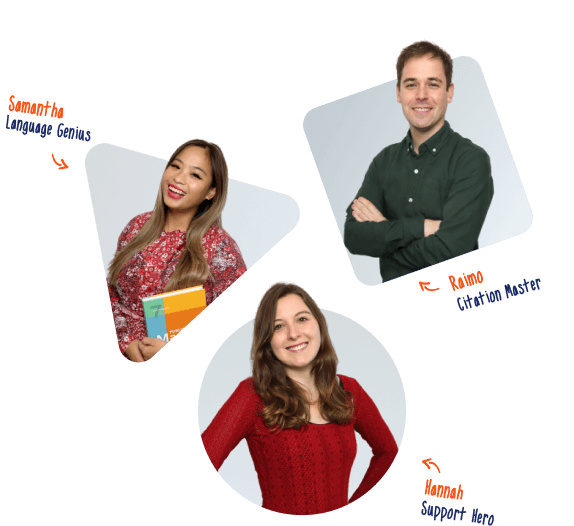
Happy to help you
You’re not alone. Together with our team and highly qualified editors , we help you answer all your questions about academic writing.
Open 24/7 – 365 days a year. Always available to help you.
Very satisfied students
This is our reason for working. We want to make all students happy, every day.
Efficient and professional
Scribbr Is Accurate & Helps You Learn the Proper Way to Cite References
I used Scribbr throughout undergrad and I swear by it; this site helped me to learn the correct way to cite my references and feel confident about it. I highly recommend it!
My experience is always great
My experience is always great; this site saves me time and problems when preparing citations for my school papers. I recommend it because it never fails to meet my expectations.
I always work with Scribbr
I always work with Scribbr. The service is excellent. I strongly recommend them.
Really impressed!
Not only did the reviewer check the grammar but she also searched for information regarding data-sources in order to correct the source information. Furthermore, she gave me tips and tricks, proposed different ways to build up sentences and the like, to help to make the whole story better. I'm really impressed!
Doug did a great job editing
Doug did a great job editing, including my references. Very professional.
sometimes the APA citations are not…
sometimes the APA citations are not correct
4 stars = I like it, but don't love it
Scribbr's citation generator is an awesome, free tool. I love that it's free. It is modestly accurate on picking up the correct source details, but I usually need to edit at least one citation detail after entering the source's link (translation: the details that the citation generator picks up is not 100% accurate). I always proof-read and revise the citation details, as needed, before using one of Scribbr's auto-generated citations. Regardless, once details are correct, Scribbr's tool is an excellent way to form correct citations and references. I will always recommend and use Scribbr (I've used it for at least three years now).
This has saved my academic rear-end in…
This has saved my academic rear-end in so many ways, but more importantly the time saved when writing papers for school is invaluable.
perfect for citing papers
open access and easy
You'd be silly not to
I have been using scribbr for the last year and I recommend this website to everyone I know. As a university student this has changed the game. The integration with AI and the shortcuts to adding sources to the reference list is so helpful and efficient. Very rarely do I have to edit the reference it has generated (I still double check it is). So easy to learn AND ITS FREE
It is a great help and I like this one
It is a great help and I like this one. Though it does not do everything I need, I still like its simplicity.
Thank you for a complete job and good…
Thank you for a complete job and good review
The editing was very good
The editing was very good, on time, and the process was very simple.
It is a great resource - with a few issues
It is a great resource, there are some occasional glitches in formatting the compiled data appropriately, but overall, it's a fantastic product! The small gripe I mentioned is a reminder of why I never rely on any AI-generated citation without question. Always look over the citations and manually edit any errors. It's a tool to save time and it works wonders when used correctly, but it shouldn't be a crutch or a replacement for understanding how to compose a proper citation.
This site is user-friendly
This site is user-friendly, and I generally find any reference I want. As an advanced study student, this is very important for time management.
Professionalism and prompt service
Above all the kindness and willingness to help me with any question I had. Martina sent me a very detailed Feedback and this helped me to understand and for future work on what I will need to look out for . Thank you again Martina and the whole Team, you are amazing 🥰🥰🎉🎉
Great citation tool
This is an amazing tool to save time…
This is an amazing tool to save time and headaches. I am currently in graduate school and this has saved me so much time in finishing papers with all the helpful features. I love how is give you the options for in text citation after you get the full citation. The website is very is easy to navigate as well.
Everything you need to write an A-grade paper
Free resources used by 5,000,000 students every month.
Bite-sized videos that guide you through the writing process. Get the popcorn, sit back, and learn!
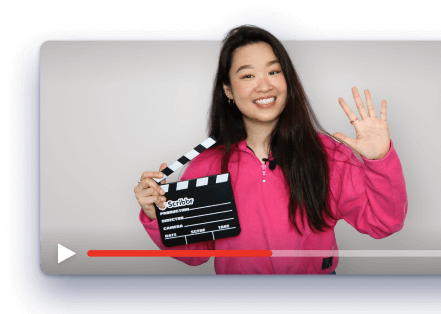
Lecture slides
Ready-made slides for teachers and professors that want to kickstart their lectures.
- Academic writing
- Citing sources
- Methodology
- Research process
- Dissertation structure
- Language rules
Accessible how-to guides full of examples that help you write a flawless essay, proposal, or dissertation.

Chrome extension
Cite any page or article with a single click right from your browser.
Time-saving templates that you can download and edit in Word or Google Docs.
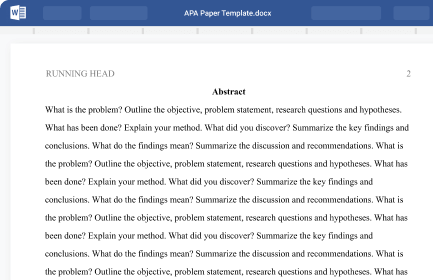
Help you achieve your academic goals
Whether we’re proofreading and editing , checking for plagiarism or AI content , generating citations, or writing useful Knowledge Base articles , our aim is to support students on their journey to become better academic writers.
We believe that every student should have the right tools for academic success. Free tools like a paraphrasing tool , grammar checker, summarizer and an AI Proofreader . We pave the way to your academic degree.
Ask our team
Want to contact us directly? No problem. We are always here for you.
- Email [email protected]
- Start live chat
- Call +1 (510) 822-8066
- WhatsApp +31 20 261 6040

Frequently asked questions
Our team helps students graduate by offering:
- A world-class citation generator
- Plagiarism Checker software powered by Turnitin
- Innovative Citation Checker software
- Professional proofreading services
- Over 300 helpful articles about academic writing, citing sources, plagiarism, and more
Scribbr specializes in editing study-related documents . We proofread:
- PhD dissertations
- Research proposals
- Personal statements
- Admission essays
- Motivation letters
- Reflection papers
- Journal articles
- Capstone projects
Scribbr’s Plagiarism Checker is powered by elements of Turnitin’s Similarity Checker , namely the plagiarism detection software and the Internet Archive and Premium Scholarly Publications content databases .
The add-on AI detector is powered by Scribbr’s proprietary software.
The Scribbr Citation Generator is developed using the open-source Citation Style Language (CSL) project and Frank Bennett’s citeproc-js . It’s the same technology used by dozens of other popular citation tools, including Mendeley and Zotero.
You can find all the citation styles and locales used in the Scribbr Citation Generator in our publicly accessible repository on Github .
Stack Exchange Network
Stack Exchange network consists of 183 Q&A communities including Stack Overflow , the largest, most trusted online community for developers to learn, share their knowledge, and build their careers.
Q&A for work
Connect and share knowledge within a single location that is structured and easy to search.
Do I have to translate primary and secondary sources into English for a dissertation?
I am writing a dissertation for my PhD in Romance Languages. I focus on Spanish literature and use primary sources all in Spanish and secondary sources in Spanish and English, but I am writing in English. Do I need to translate the Spanish quotes I use from my primary and secondary sources into English for my dissertation? I am using MLA style and I could not find a rule about this issue.
- translations
- citation-style
- This might be of use: ask.metafilter.com/152553/… – Compass Commented Jan 16, 2015 at 18:07
- 2 If it were me, I would err on the side of caution, cite the original language, and then footnote/glossary a translation. – Compass Commented Jan 16, 2015 at 18:07
- 5 This would seem to depend pretty heavily on the norms for your field, so why not ask your advisor? I'm not in this field, but would seem to me that if you're writing a dissertation about Spanish literature, you'd presume your audience can read Spanish. Indeed, the original Spanish might contain elements that would be lost in translation. – Nate Eldredge Commented Jan 16, 2015 at 18:45
2 Answers 2
I wrote my dissertation about translation in Spanish, and I had to quote several non-Spanish speking authors (English, German, Catalan, French). I decided quoting in the original language and adding the translation in a footnote. When there was a published Spanish translation of the quote, I used it. But if not, I translate it myself. However, it's a good idea to ask your supervisor if there is a style guide for this issues.
The general practice for translation in literary studies is that you translate if your audience does not know the language of the original, e.g. a Russian source on French literature. It may (depending) also be assumed that everybody reads French. But practices change over time, usually in the direction of increasing the need for translation. The best way to determine what the standard practice is in your field is to look at dissertations and academic articles in the field. I note that in some recent issues of Latin American Literary Review , articles in English are published with untranslated quotes in Spanish.
You must log in to answer this question.
Not the answer you're looking for browse other questions tagged language translations citation-style ..
- Featured on Meta
- Bringing clarity to status tag usage on meta sites
- Announcing a change to the data-dump process
Hot Network Questions
- How to Interpret Statistically Non-Significant Estimates and Rule Out Large Effects?
- Has any astronomer ever observed that after a specific star going supernova it became a Black Hole?
- Which weather condition causes the most accidents?
- Is response variable/dependent variable data required for simr simulation?
- Geometry 15mm margin for Marie curie proposal
- I'm a little embarrassed by the research of one of my recommenders
- Why didn't Air Force Ones have camouflage?
- Invest smaller lump sum vs investing (larger) monthly amount
- How to connect 20 plus external hard drives to a computer?
- Why doesn’t dust interfere with the adhesion of geckos’ feet?
- Creating Layout of 2D Board game
- Are all citizens of Saudi Arabia "considered Muslims by the state"?
- Cohomological range of a perverse sheaf
- Using rule-based symbology for overlapping layers in QGIS
- Numbering Equations in a Closed Bracket
- Escape from the magic prison
- Quantum Gravity is non-renormalizable...So what?
- What is it called when someone implies something without directly saying it, so they can deny they said what they were implying
- Would an LEO asking for a race constitute entrapment?
- Short story about humanoid creatures living on ice, which can swim under the ice and eat the moss/plants that grow on the underside of the ice
- Checklist of documents for visiting Poland if I already have a Schengen visa
- Trill with “no turn” in Lilypond
- Matrix Multiplication & Addition
- Why does this theta function value yield such a good Riemann sum approximation?
Voice speed
Text translation, source text, translation results, document translation, drag and drop.

Website translation
Enter a URL

Image translation
Millions translate with DeepL every day. Popular: Spanish to English, French to English, and Japanese to English.

Translation: Research MA
London, Bloomsbury
Equip yourself with the skills needed to pursue a career in translation while focusing on your specific interests in translation and intercultural studies. The Translation: Research MA enables you to choose from a variety of translation modules, including theoretical and technological topics, and advanced modules in a range of languages. Taught at UCL, you’ll also benefit from access to interdisciplinary experts and language specialists.
UK tuition fees (2024/25)
Overseas tuition fees (2024/25), programme starts, applications accepted.
Applications closed
- Entry requirements
A minimum of a first or high upper second-class Bachelor's degree (average 65%) in a relevant discipline from a UK university, or an overseas qualification of an equivalent standard. Students should only translate out of a language in which they have an advanced level minimum and should only translate into a language in which they have native-level proficiency (language combinations subject to availability).
The English language level for this programme is: Level 4
UCL Pre-Master's and Pre-sessional English courses are for international students who are aiming to study for a postgraduate degree at UCL. The courses will develop your academic English and academic skills required to succeed at postgraduate level.
Further information can be found on our English language requirements page.
Equivalent qualifications
Country-specific information, including details of when UCL representatives are visiting your part of the world, can be obtained from the International Students website .
International applicants can find out the equivalent qualification for their country by selecting from the list below. Please note that the equivalency will correspond to the broad UK degree classification stated on this page (e.g. upper second-class). Where a specific overall percentage is required in the UK qualification, the international equivalency will be higher than that stated below. Please contact Graduate Admissions should you require further advice.
About this degree
The Translation: Research MA allows you to choose from a range of translation options covering theoretical and technological topics and language modules. The dissertation project provides a bespoke opportunity to develop independent critical and analytical thought in researching and presenting a sustained piece of writing on a topic of your choice.
Optional advanced translation modules are available to students in the following languages: Dutch, Chinese, French, German, Hebrew, Italian, Portuguese, Russian, Scandinavian languages, and Spanish. We also offer optional modules with language-specific strands (subject to availability). The individual modules listed below outline the available languages and usually include a wide range of European languages as well as Arabic, Chinese, Korean, Japanese and Russian. We are also able to offer Ukrainian (subject to availability - please contact the MA director).
Who this course is for
The programme is particularly suitable for graduates in a language and culture subject who are ultimately aiming to undertake a PhD and wish to conduct an in-depth study of a specific topic in translation and intercultural studies. A sound knowledge of at least one language other than English is essential.
What this course will give you
Located in the heart of multicultural London, UCL provides a uniquely rich environment for studying and researching translation in all its facets, taught by specialist translation staff with a diverse range of research interests including literary translation and theatre translation.
The MA is truly interdisciplinary with access to experts in an unrivalled variety of languages and disciplines from across Europe and further afield. This allows students to customise the programme in relation to their language competencies and other academic and professional interests.
UCL translation students are highly valued by the translation industry, with workshops and networking events organised during the year.
The foundation of your career
The MA Translation (Research) is designed to equip students for further research in the field through modules in translation theory and research methods. In addition, practical modules will provide graduates with a range of vocational skills that enable them to pursue careers in the fields of translation. Former students have gone on to complete PhDs or work as translators for companies such as KPMG and Alpha CRC. Graduates also acquire transferable skills that lead them into careers within publishing, media, finance, fashion, PR and education; examples include our graduates who are now working for Newsweek, the British Library, Morgan Stanley, Sainsbury's and Deloitte.
Employability
There is an ever-growing demand for highly-trained commercial, literary and other types of translators in the private and public sectors and in international organisations in the UK and abroad. Other career paths include media, publishing, education, the cultural and heritage sectors, consulting, and civil and diplomatic services. CenTraS PhD graduates have high rates of success in entering both the translation industry and the academic sector, whether in the UK, China, or elsewhere.
Our location offers students access to special collections at UCL and other world-class libraries nearby such as Senate House and the British Library.
These resources, besides their collections of books, articles, videos, sound recordings and non-public online resources, offer a wide range of seminars, lecture series and other opportunities to exchange ideas. Other libraries and research centres within walking distance of campus include the British Museum, Institute of Languages, Cultures and Societies, Institute of Historical Research and The Warburg Institute.
UCL Careers also offers a range of services, providing access to skills development, recruitment and networking events.
Teaching and learning
The programme is delivered through a combination of lectures, seminars, practical translation exercises, case studies, tutorials and private study, depending on the options chosen. The third term is devoted to revision sessions and the dissertation project.
A 15-credit module is equivalent to 150 hours of study and a 30-credit module is equivalent to 300 hours. This includes contact time, private study and the undertaking of coursework assignments.
Students are assessed by a variety of methods, core modules are assessed by essays, presentations and coursework. Optional modules are assessed through unseen and written examination, coursework, translation projects and essays. Teaching sessions are interactive, with a limited amount of lecturer presentation and an emphasis on student participation and critical discussion.
For a full-time postgraduate course, we recommend around 20-25 hours of independent study per week. The majority of our courses have around 10-12 hours' teaching time spent in lectures and seminars.
For a part-time postgraduate course, your contact hours would usually be 5-6 hours per week across 2-3 days and we recommend around 10-12 hours of independent study per week.
Those undertaking language modules may have additional contact hours.
There is minimal teaching during Term 3, which focusses on the dissertation and assessment.
15 credit modules involve 150 learning hours and for 30 credit modules, 300 hours. Approximately one-third of the hours are allocated for the assessment exercise. The remainder is divided between class time and self-directed study. Hours expected to be dedicated to private reading far exceed the hours of class attendance.
You will undertake modules to the value of 180 credits, including two core modules and the dissertation module. Optional modules are chosen from a wide offering in consultation with the programme director to ensure your workload is balanced between terms.
During the academic year, you will take compulsory modules which are designed to work as a postgraduate-level foundation and provide you with the specific skills to research, write essays and to support the dissertation. You will also choose from a wide range of optional modules (see Optional modules). In addition to your taught modules, you will start formulating your dissertation proposal. This work will continue into Term 3 and across the remainder of the academic year. You will develop your dissertation outline and structure with support from your supervisor.
You will undertake modules to the value of 180 credits, including two core modules and the dissertation module. Optional modules are chosen from a wide offering in consultation with the programme director to ensure your workload is balanced across the two years if studying part-time.
In Year 1, you will take compulsory modules, designed to work as a postgraduate-level foundation module and to provide you with the specific skills to research, write essays and to support the dissertation. These modules set the foundation for the whole MA, preparing you for further learning and for your dissertation.
In Year 2, you will take optional modules to develop a broader understanding of theoretical, technological and language topics, as well as developing key concepts learnt in Year 1. You will also formulate and develop your dissertation outline and structure with support from your supervisor. You will then spend the summer of Year 2 researching and writing your dissertation on a topic to be determined in discussion with your supervisor.
Compulsory modules
Optional modules.
Please note that the list of modules given here is indicative. This information is published a long time in advance of enrolment and module content and availability are subject to change. Modules that are in use for the current academic year are linked for further information. Where no link is present, further information is not yet available.
Students undertake modules to the value of 180 credits. Upon successful completion of 180 credits, you will be awarded an MA in Translation: Research.
Accessibility
Details of the accessibility of UCL buildings can be obtained from AccessAble accessable.co.uk . Further information can also be obtained from the UCL Student Support and Wellbeing team .
Fees and funding
Fees for this course.
| Fee description | Full-time | Part-time |
|---|---|---|
| Tuition fees (2024/25) | £15,100 | £7,550 |
| Tuition fees (2024/25) | £31,100 | £15,550 |
The tuition fees shown are for the year indicated above. Fees for subsequent years may increase or otherwise vary. Where the programme is offered on a flexible/modular basis, fees are charged pro-rata to the appropriate full-time Master's fee taken in an academic session. Further information on fee status, fee increases and the fee schedule can be viewed on the UCL Students website: ucl.ac.uk/students/fees .
Additional costs
All full time students are required to pay a fee deposit of £1,000 for this programme. All part-time students are required to pay a fee deposit of £500.
Additional costs may include expenses such as books, stationery, printing or photocopying, or conference registration fees and associated travel costs.
The department strives to keep additional costs low. Books and journal articles are usually available via the UCL library as hard copies or via e-journal subscriptions.
For more information on additional costs for prospective students please go to our estimated cost of essential expenditure at Accommodation and living costs .
Funding your studies
For a comprehensive list of the funding opportunities available at UCL, including funding relevant to your nationality, please visit the Scholarships and Funding website .
ANS Dutch Studies Bursary
Deadline: 1 November Value: £1,250 (1yr) Criteria Based on financial need Eligibility: UK, EU, Overseas
Students are advised to apply as early as possible due to competition for places. Those applying for scholarship funding (particularly overseas applicants) should take note of application deadlines.
There is an application processing fee for this programme of £90 for online applications and £115 for paper applications. Further information can be found at Application fees .
When we assess your application we would like to learn:
- why you want to study Translation: Research at graduate level
- why you want to study Translation: Research at UCL
- what particularly attracts you to this programme
- how your personal, academic and professional background meets the demands of this programme
- where you would like to go professionally with your degree
Together with essential academic requirements, the personal statement is your opportunity to illustrate whether your reasons for applying to this programme match what the programme will deliver.
Please note that you may submit applications for a maximum of two graduate programmes (or one application for the Law LLM) in any application cycle.
Got questions? Get in touch

Centre for Multidisciplinary and Intercultural Inquiry
UCL is regulated by the Office for Students .
Prospective Students Graduate
- Graduate degrees
- Taught degrees
- Taught Degrees
- Applying for Graduate Taught Study at UCL
- Research degrees
- Research Degrees
- Funded Research Opportunities
- Doctoral School
- Funded Doctoral Training Programmes
- Applying for Graduate Research Study at UCL
- Teacher training
- Teacher Training
- Early Years PGCE programmes
- Primary PGCE programmes
- Secondary PGCE programmes
- Further Education PGCE programme
- How to apply
- The IOE approach
- Teacher training in the heart of London
- Why choose UCL?
- Entrepreneurship
- Inspiring facilities and resources
- Careers and employability
- Your global alumni community
- Your wellbeing
- Postgraduate Students' Association
- Your life in London
- Accommodation
- Funding your Master's
- Bibliography
- More Referencing guides Blog Automated transliteration Relevant bibliographies by topics
- Automated transliteration
- Relevant bibliographies by topics
- Referencing guides
MA — 2025 entry Translation and AI
Originally launched in 1986, our Translation and AI MA is one of the longest-running in the world and attracts students from all over the globe. We'll provide you with a solid, all-round translator education fit for the evolving realities and technological challenges of the language industry
Key course information
- September 2025 - Full-time
- September 2025 - Part-time
Why choose this course?
- Our teaching combines professional translation experience with expertise in translation studies and is designed to meet the true needs of today’s translation market, whilst also enabling you to develop a professional CV as you study.
- As a UK centre of excellence in Translation Studies, we are guided by an ambitious research programme which focuses on the responsible integration of tried-and-tested professional translation practices.
- These fast-evolving language technologies include translation memories, term management software, corpus linguistics as an aid to translation, machine translation and artificial intelligence (AI) tools like ChatGPT.
Fantastic graduate prospects
97% of our School of Literature and Languages postgraduate students go on to employment or further study (Graduate Outcomes 2024, HESA)
10th for research impact
The Research Excellence Framework (REF) 2021 ranked the School of Literature and Languages 10th for research impact
4th in the UK
For Languages and Linguistics in the Guardian University Guide 2024
Course details Open
What you will study.
The course has a strong practical component that includes translation practice in the following languages paired with English: Arabic, Chinese (Mandarin), French, German, Greek, Italian, Korean, Polish, Norwegian, Portuguese, Romanian, Russian, Spanish, Swedish, and Turkish. Other languages are available upon request, subject to a minimum number of students.
You will develop professional translation skills under the coordinated guidance of professional translators and experienced academics. You will simulate real-life translation scenarios and cover a variety of specialisms, as you develop a solid grounding in the linguistic, cognitive, technological, quality, social and ethical dimensions of the profession. You will learn to understand, discuss and justify translation processes and translation product decisions. You will confront a wide range of translation challenges, learn to use cutting-edge software to enhance your practice, including computer-assisted translation tools, corpus linguistics software for translation, machine translation, and the responsible use of generative AI tools. In doing so, you will gain a critical understanding of how technologies impact the profession.
Optional modules focusing on the creative, business, technological and research dimensions of translation enable you to customise your learning, according to your own strengths, personal tastes and career ambitions.
You will have the opportunity to gain experience of language services provision through work placements and/or other tasks and industry collaborations.
To conclude your MA, our flexible dissertation options enable you to submit a choice of one of the following:
- A dissertation based on researching a specific translation topic
- An extended translation paired with a reflective analytical commentary
- A critical report of a language-industry work placement
- A critical report of a skills-enhancement programme (such as a summer school or similar).
During your studies, you will have the opportunity to have your academic and professional excellence rewarded with the following prizes:
- RWS Campus Top Student Award (two Trados licenses)
- Project management training (one free-of-charge place in the Pro PM Training and Certification Programme)
- Professional Engagement Portfolio Prize
- Best Performance in Translation Prize.
An international community
The Translation and AI MA attracts students from all over the world, forming a truly multilingual international community. Our MA cohorts tend to be a mix of students who have just completed their undergraduate degrees and more mature students, with different backgrounds of experience.
A future-proof education
The course helps you develop not just core translation and translation technology skills, but also competencies in terminology, transcreation, localisation, multimodal communication and other specialised and multilingual language services. The MA is taught by professional translators and research-active academics working closely together, offering you a combination of practical experience and research-led teaching.
The programme is industry-facing, and provides an education that is guided by Surrey’s research and expertise in translating both creative and specialised texts while interacting with translation-memory systems, machine translation, AI tools (such as ChatGPT), performing post-editing tasks, and collaborating through digital platforms. It addresses machine-translation quality, uses and usability, the translation of audio-visual content for diverse audiences, text mining, an introduction to natural language processing, and corpus linguistics approaches to terminology extraction, bilingual term compilation, and enhancing quality in translation.
Professional development
Our course is designed to help you develop the linguistic, translation, technological, business, interpersonal and other soft skills needed for a successful career in the language services industry.
Surrey’s expertise and the training it provides in translation technologies means our graduates are well prepared for the increasing demand for computer-assisted translation, post-editing, remote collaborative assignments, terminology management, interacting with LLMs (large-language models) and new, emerging modes of language services provision.
You will practise translation in your working language combination(s) in small groups under the guidance of professional translators, who simulate authentic translation scenarios and cover a variety of specialisms with an emphasis on real-world demands for translation.
Surrey’s Centre for Translation Studies also hosts regular seminars with guest speakers, providing you with further insights into the profession and what is new in translation research.
You will receive guidance on the development of a professional engagement portfolio to help you build a professional CV as you study. This involves documenting collaborations with language services providers (such as work placements and volunteer translation) and other extra-curricular activities (such as joining a professional association or attending professional development workshops and webinars). You will also be encouraged to use your skills in the local community. For example, past students have collaborated with the University’s International Office, Watts Gallery and Guildford Walking Tours.
Industry links
We have forged close links with the main professional bodies in the language industry. For example, we are part of the prestigious Chartered Institute of Linguists’ Higher Education Language Partnership and corporate members of the Institute of Translation and Interpreting . You can join these bodies as a student member during the course and become a full member after you graduate.
We also collaborate with the Translation Automation User Society , the European Language Industry Association , and the Globalization and Localization Association , which gives you the possibility to apply for a work placement with various translation and interpreting partner companies. We have close links with language service providers, and have an extensive network of visiting professionals, so you will benefit from excellent connections and be taught to industry standards.
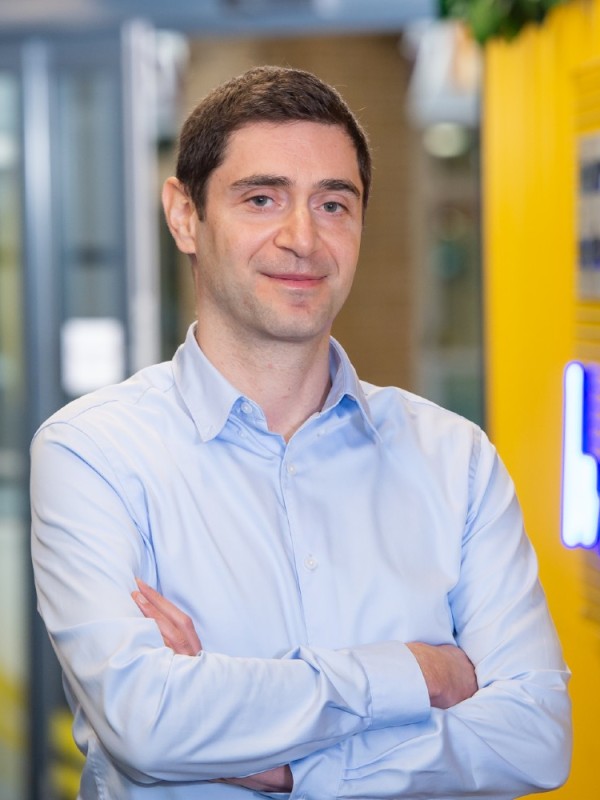
Dr Dimitris Asimakoulas
Programme leader
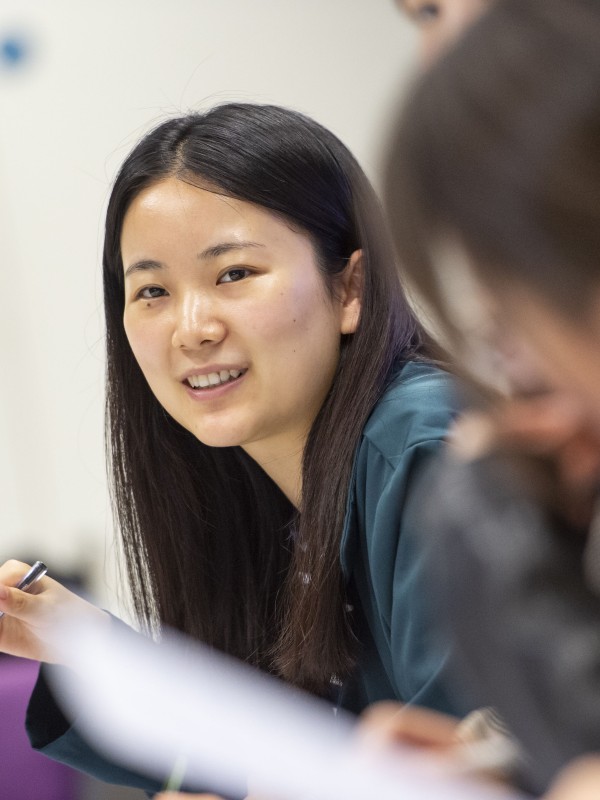
Literature and Languages
This course is taught by academic staff from Literature and Languages, part of the School of Arts, Humanities and Creative Industries.
Course structure Open
The MA Translation and AI course is studied over one year (full-time) or two years (part-time).
The taught part of the programme is divided into eight 15-credit modules. A 15-credit module is indicative of 150 hours of learning. The hours of learning comprise of contact hours, guided learning and private study.
The course has three compulsory modules, and you must select another five optional modules.
Our varied offer of optional modules will enable you to tailor the programme to your personal strengths and preferences. If you are a full-time student, you will take the compulsory modules Professional Translation Practice I and Principles and Challenges of Translation and Interpreting in Semester 1, and Professional Translation Practice II in Semester 2. You will then take two optional modules in Semester 1, and three in Semester 2.
If you choose to study part-time, you will take compulsory modules in your first year. You can distribute the five remaining modules flexibly over two years.
You will complete your degree with a Translation and Interpreting Studies Dissertation (60 credits), to be submitted at the beginning of September. You can choose between three types of dissertation:
- A topic-based dissertation
- An extended translation or interpreting analytical commentary
- A work placement (minimum 150 hours) plus critical report.
The structure of our programmes follows clear educational aims that are tailored to each programme. These are all outlined in the programme specifications which include further details such as the learning outcomes:
- Translation and AI MA
Modules listed are indicative, reflecting the information available at the time of publication. Modules are subject to teaching availability, student demand and/or class size caps.
The University operates a credit framework for all taught programmes based on a 15-credit tariff, meaning all modules are comprised of multiples of 15 credits, up to a maximum of 120 credits.
Course options
Professional translation practice i.
This module introduces students to professional translation practice. Taking a holistic approach to translator education, students engage in regular, practical translation workshops in which they are encouraged to translate different types of texts and reflect critically on the principles and challenges of contemporary translation. Covering different types of professional assignments, including specialized terminology research, translation for different purposes and audiences, and proofreading and editing, the workshops enable students to engage critically with the quality of professional human translation; this will prepare students for professional translation practice, including post-editing and evaluation of machine-translation and artificial -intelligence (AI) solutions. The workshops are led by practising translators and include translation practice in language-specific and multilingual groups. The languages we regularly offer include: Arabic, Chinese, French, German, Greek, Italian, Korean, Polish, Norwegian, Portuguese, Romanian, Russian, Spanish, Swedish and Turkish, all paired with English. Other languages are available upon request (please ask). All languages are subject to demand and tutor availability. Close alignment with the module ‘Principles and Challenges of Translation and Interpreting’ enables students to confront a wide range of issues, equipping them with both a solid grounding in the guiding principles that underpin the discipline and the strategic competences required to engage in best practices in the profession. As part of the module, students begin to compile a Professional Engagement Portfolio based on additional profession-oriented activities undertaken independently with guidance; these activities are gradually documented during the academic year and then formally assessed and, for instance, typically include participation in workshops, talks and seminars organised by professional associations as well as additional training or work related to the programme.
PRINCIPLES AND CHALLENGES OF TRANSLATION AND INTERPRETING
This module provides students with a systematic framework for understanding key concepts in Translation and Interpreting Studies and how they relate and apply to the rest of the programme and to everyday professional practice. The module enables students to confront a wide range of translation and interpreting challenges, from the lack of equivalence between languages and cultures to contemporary technological, ethical and societal issues affecting translation and interpreting practice, including the rapidly evolving use of machine translation and artificial intelligence (AI). The module equips students with both a solid grounding in the guiding principles of translation and interpreting, derived from scholarly engagement with the discipline, and the strategies required to engage in best practices in the profession and future career development. Taking a holistic approach to translator and interpreter education, the module consists of lectures and seminars that discuss the main principles and challenges of translation and interpreting, and explore solutions in close alignment with other modules in the programme. Students complement lectures and seminars with practical exercises and independent reading.
INTRODUCTION TO COMPUTATIONAL THINKING FOR TRANSLATORS
The purpose of this module is to develop problem-solving skills, enabling students to acquire basic and intermediate concepts of computer science and programming, and to learn how to apply them to problems related to translation-related tasks such as glossary creation, error analysis, automatic substitution. Topics to be covered include computational thinking, basic programming concepts such as fundamental data types, control structures, as well as practical examples how this knowledge can be applied for extracting statistics from corpora, cleaning translation memories and preparing data for experiments and analyse the results. Students will be taught different prompting techniques which allows them to interact with Large Language Models (LLMs) like ChatGPT to solve problems. Students will learn how to analyse a problem, design solutions and implement them in a chosen programming language with the help of LMMs. The programming language to be used in this module is Python. Students will learn not only how to implement solutions in Python, but they will also gain the skills to analyse the responses from LLMs existing pieces of code and understand how to adapt them for their needs. Practical sessions will give participants hands-on experience in LLM prompting and writing Python programs individually and in teams. The practical sessions will greatly enhance students’ problem-solving skills and resourcefulness. The module is intended for students who have no programming experience, but students with programming background interested in learning Python and how it can be used in the area of translation technology will also benefit from it.
WRITING AND REWRITING FOR TRANSLATORS
This module focuses on the intricate relationship between writing and translation through the practicalities of text production within a broad writing context (i.e. from fiction prose to technical text production), with a view to making translators aware of the basic elements required to create an effective text. It will combine weekly theoretical lectures with workshops to read and discuss students' work as well as rewriting and revising techniques.
TRANSLATION AS HUMAN-COMPUTER INTERACTION
This module is an introduction to the practice of translation with the support of the most advanced technologies available, focusing on the demand for translators to possess expert skills to be in command of their performance and in control of the outputs of their work. The module is informed by the evolution of requirements of professional translation, namely under the influence of advanced technologies like machine translation. The focus of the module is on the interaction between translators and the computer tools that they use.
PROFESSIONAL TRANSLATION PRACTICE II
This module builds on the work of the Professional Translation Practice I module, by extending the approach of a connection between theory and practice to a connection between technology and practice. The module presents a sequence of themes related to the role of technology in translation, including the role of AI-powered tools such as neural machine translation and generative AI, recognising their different applications in translation and providing students with a growing perspective of the uses of technological tools to solve different professional translation challenges. The module focuses on several dimensions of tasks and roles translators need to perform in professional contexts. These are explored in a combination of language-specific and multilingual translation workshops and technology workshops, so that students have regular opportunities for hands-on practice and guidance from professional translators and experienced members of staff. As in semester 1, the languages we usually offer include: Arabic, Chinese, French, German, Greek, Italian, Korean, Polish, Norwegian, Portuguese, Romanian, Russian, Spanish, Swedish andor Turkish, all paired with English. Other languages are available upon request (please ask). All languages are subject to demand and tutor availability. As part of the module, students also continue to work on their Professional Engagement Portfolio from semester one (see Professional Translation Practice I).
AUDIOVISUAL TRANSLATION
In this module students learn about the distinctive features of multimodal translation, such as subtitling, dubbing, audio description and live subtitling. The module introduces students to the main challenges in each mode of audiovisual translation across a variety of genres, such as film, documentaries and video games. As such, the module will combine tutor-led components and components with a prominent practical element.
SMART TECHNOLOGIES FOR TRANSLATION
Students taking this module explore the main theoretical and practical aspects of smart technologies for translation, with emphasis on how the latest developments in Natural Language Processing, Large Language Models (e.g. ChatGPT) and Corpus Linguistics can to help translators. The purpose of this module is to enable students to understand the challenges faced when using computers artificial intelligence to process text automatically or when they need to process speech as an input. The focus is on enhancing students’ digital capabilities, especially those linked to the translation industry. The module will provide students with knowledge about the fields of Machine Translation (MT), Natural Language Processing (NLP), Large Language Models (LLMs) and Corpus Linguistics (CL). The module will start with an introduction to NLP and machine translation and will present different paradigms to produce automatic translations. Students will be provided with hands-on experience on how to train translation engines, and how it is possible to evaluate MT, as well as how to use LLMs for translation related tasks. . Other topics such as terminology extraction, speech recognition and translation will also be covered. The students will learn how to harvest relevant corpora from the web, clean them and use them for translation-related tasks.The practical tasks addressed in the module will improve students’ problem-solving skills and contribute to their future career development. Knowledge of programming will not be necessary, but students who have a programming background will be given the opportunity to use this knowledge in the module. Links will be established with other modules such as TRAM500 and TRAM496.
TRANSLATION FOR THE CREATIVE INDUSTRIES
This module introduces students to the key critical considerations and creative and technical decisions faced by translators of works in the cultural/creative industries, such as the film, theatre, creative or publishing industries. By focusing on the repertoires and creative decisions that such translation entails, the definition of ‘translation’ will be examined rather broadly, namely, both as a form of interlingual transfer and as a creative platform for (re)writing texts. Examples are offered from the areas of advertising, cultural heritage, tourism, performance (drama translation) and entertainment/art (children’s literature, comic books, films). The module is suitable for students with different language backgrounds and it offers a creative practical component as well as insights into how the creative industries work.
Semester 1 & 2
Translation and interpreting studies dissertation.
This module is designed to enable students to consolidate and further advance the knowledge and skills acquired during the taught components of the programme, and gain experience working independently on an extended project through one of the following options: Research on a Translation or Interpreting Studies topic and a written dissertation An extended translation with an analytical commentary or an interpreting simulation with an analytical commentary A work placement of at least 150 hours accompanied by a critical report. If taking this option, it is the responsibility of students to find a professional placement approved by CTS (this includes volunteer translation and a range of ad hoc language-industry activities carried out during the academic year). CTS will support students in finding a placement through professional engagement portfolios, invited seminar talks and a dedicated language industries careers fair. A practical skills-enhancement programme of 60 hours or equivalent and a written report. If taking this option, the skills-enhancement programme can be either run by CTS (subject to availability and demand) or external. If external (e.g. a summer school run by another organization), the programme must be approved by CTS in advance
Optional modules for Year 1 (full-time) - FHEQ Level 8
Students must choose five optional modules - two in Semester 1 and three in Semester 2. Professional Translation Practice language options include Arabic, Chinese (Mandarin), French, German, Greek, Italian, Korean, Norwegian, Polish, Portuguese, Romanian, Russian, Spanish, Swedish and Turkish paired with English. They require native or near-native competency in English and one of the above languages.
Optional modules for Year 1 (part-time) - FHEQ Level 7
For further information regarding programme structure and module selection, please refer to the course catalogue .
Optional modules for Year 2 (part-time) - FHEQ Level 7
Students must choose four optional modules in year 2.
General course information
Contact hours.
Contact hours can vary across our modules. Full details of the contact hours for each module are available from the University of Surrey's module catalogue. See the modules section for more information.
Course timetables are normally available one month before the start of the semester.
Please note that while we make every effort to ensure that timetables are as student-friendly as possible, scheduled teaching can take place on any day of the week (Monday – Friday). Wednesday afternoons are normally reserved for sports and cultural activities. The part-time timetable is based on the full-time one, so classes will run on any teaching day.
Translation Studies seminars take place on Wednesday afternoons – attendance is optional, but strongly encouraged.
Please note that as our practice-based classes are normally provided by professional interpreters and we may sometimes have to reschedule classes to accommodate professional commitments.
View our code of practice for the scheduling of teaching and assessment (PDF) .
Stag Hill is the University's main campus and where the majority of our courses are taught.
Career opportunities Open
We offer careers information, advice and guidance to all students whilst studying with us, which is extended to our alumni for three years after leaving the University.
There is a growing demand for novel modes of translation and multilingual language services that our MA Translation and AI students are specifically prepared for.
The course’s work placement dissertation option enables you to gain professional experience and nurture a close relationship with a prospective employer. We are regularly contacted by stakeholders from the language services industry wishing to recruit Surrey MA Translation and AI students and recent graduates.
Job opportunities include:
- Working as in-house and freelance translators
- Multilingual content writers
- Language-services managers
- Localisation specialists
- Terminology specialists
- Transcreation specialists
- Language and translation tutors.
Recent Surrey graduates have pursued careers at international organisations, government bodies and the private sector, as well as developing successful freelance ventures. A few of our MA students carry on studying for a PhD , which will open doors for them to embrace an academic career.
To further help our students with work opportunities in the language services industry, we host an annual careers fair where local and international companies with an active interest in MA Translation and AI graduates meet our students in an informal, friendly atmosphere.
Facilities Open
As a student, you will have classes in dedicated language-software computer labs . You will work hands-on with state-of-the-art tools such as:
- SDL Trados Studio
- Dragon Naturally Speaking
- SDL MultiTerm
- Sketch Engine
Hear from our students Open

Hayley Smith
Student - Translation MA
"I’d really love to go on to do a doctorate at Surrey following my MA. I didn’t expect this to be the case when I started, but my course has inspired me so much and I’m really keen to develop further research in my field."

"The course is a chance for me to upskill in terms of translation technologies, develop my understanding of the languages industries and expand my existing translation practice."
Entry requirements Open
Uk qualifications.
If you are a native English speaker, we require a minimum of a 2:2 UK honours degree in one of the languages listed below or in a related subject taught in one of these languages.
Native speakers of a relevant language (from the list below) require a degree in an arts, humanities or social science (e.g. economics, management, tourism and hospitality management) subject.
Alternative subjects will be considered by the Faculty on a case-by-case basis.
Relevant work experience to be considered by the Faculty on a case-by-case basis.
The languages available in the programme (subject to demand) are:
- Chinese (Mandarin)
Other languages may be available upon request.
Country-specific qualifications
International students in the united kingdom, english language requirements.
IELTS Academic: 6.5 overall with 7.0 in writing and 6.0 in each other element.
These are the English language qualifications and levels that we can accept.
If you do not currently meet the level required for your programme, we offer intensive pre-sessional English language courses , designed to take you to the level of English ability and skill required for your studies here.
Recognition of prior learning
We recognise that many students enter their course with valuable knowledge and skills developed through a range of ways.
If this applies to you, the recognition of prior learning process may mean you can join a course without the formal entry requirements, or at a point appropriate to your previous learning and experience.
There are restrictions for some courses and fees may be payable for certain claims. Please contact the Admissions team with any queries.
Fees and funding Open
Fees per year.
Explore UKCISA’s website for more information if you are unsure whether you are a UK or overseas student. View the list of fees for all postgraduate courses.
September 2025 - Full-time - 1 year
September 2025 - part-time - 2 years.
- If you are on the two-year part-time masters programme, the annual fee is payable in Year 1 and Year 2 of the programme
- These fees apply to students commencing study in the academic year 2024-25 only. Fees for new starters are reviewed annually.
Payment schedule
- Students with Tuition Fee Loan: the Student Loans Company pay fees in line with their schedule (students on an unstructured self-paced part-time course are not eligible for a Tuition Fee Loan).
- Students without a Tuition Fee Loan: pay their fees either in full at the beginning of the programme or in two instalments as follows:
- 50% payable 10 days after the invoice date (expected to be October/November of each academic year)
- 50% in January of the same academic year.
- Students on part-time programmes where fees are paid on a modular basis: cannot pay fees by instalment.
- Sponsored students: must provide us with valid sponsorship information that covers the period of study.
The exact date(s) will be on invoices.
Additional costs
Additional costs may be incurred within the Dissertation module if the work placement is opted for. This may include expenses, such as travel to and from the workplace, any required accommodation and related subsidiary costs. However, please note that in the language services industry it is often possible to carry out work placements or parts of it remotely/virtually.
You may be able to borrow money to help pay your tuition fees and support you with your living costs. Find out more about postgraduate student finance .
Admissions information
Once you apply, you can expect to hear back from us within 14 days. This might be with a decision on your application or with a request for further information.
Our code of practice for postgraduate admissions policy explains how the Admissions team considers applications and admits students. Read our postgraduate applicant guidance for more information on applying.
About the University of Surrey

Accommodation
We have a range of housing to suit all requirements and budgets. There are more than 6,000 rooms available (en-suite, single-sex, studio flat, shared or single).

Student life
At Surrey we offer a friendly university campus set in beautiful countryside, with the convenience and social life of bustling Guildford on your doorstep.
Need more information?
Contact our Admissions team or talk to a current University of Surrey student online.
Next open day
Terms and conditions.
When you accept an offer to study at the University of Surrey, you are agreeing to follow our policies and procedures , student regulations , and terms and conditions .
We provide these terms and conditions in two stages:
- First when we make an offer.
- Second when students accept their offer and register to study with us (registration terms and conditions will vary depending on your course and academic year).
View our generic registration terms and conditions (PDF) for the 2023/24 academic year, as a guide on what to expect.
This online prospectus has been published in advance of the academic year to which it applies.
Whilst we have done everything possible to ensure this information is accurate, some changes may happen between publishing and the start of the course.
It is important to check this website for any updates before you apply for a course with us. Read our full disclaimer .
Translation of "dissertation" in Spanish
Suggestions.
Results: 6750 . Exact: 6750 . Elapsed time: 111 ms.
- Manage Account
Karol G & Peso Pluma Get Flirty in ‘QLONA’: Here Are the Lyrics Translated Into English
The sultry collab has reached No. 1 on the Hot Latin Songs chart.
By Jessica Roiz
Jessica Roiz
Assistant Editor, Latin
- Share on Facebook
- Share to Flipboard
- Share on Pinterest
- + additional share options added
- Share on Reddit
- Share on LinkedIn
- Share on Whats App
- Send an Email
- Print this article
- Post a Comment
- Share on Tumblr

Karol G and Peso Pluma get sexy and flirtatious in their first collaborative effort, “QLONA” (wordplay that loosely translates to “girl with a big butt”).

Karol G Replaces Herself at No. 1 on Hot Latin Songs With Peso Pluma Collab ‘Qlona’
The Ovy on the Drums-produced track is a sultry, slow-tempo reggaeton that finds both the Colombian singer and Mexican artist crooning about desiring each other and wanting to be together.
Trending on Billboard
I saw you yesterday Alone That beautiful face D–n, what a mamacita You’re teasing me Even though it’s not intentional I already asked about you And more than a month ago You broke up with that fool
What crazy desire I have To kiss you I saw you in a photo and imagined you Without clothes I’d be lying if I’m not crazy To see you With those jeans, You have a big booty (x2)
We’re going to party Smoking in the club Pure perreo You wore a miniskirt To see if I catch you A kiss to feel That drip And turn on the camera To film you a video
I’m not going to lie I can’t stop imagining Your butt in a thong Turn around for me Until the sun comes out I’ll make you hot And your whole body will burn
I make you hot Like the sand And that white booty is the sun I’ll turn it maroon He has it big Because of him, I train
We begin to touch each other Wet, a serene flow (x2)
What crazy desire I have To kiss you I saw you in a photo and imagined you Without clothes I’d be lying if I’m not crazy To see you With those jeans, You have a big booty (x2) I saw you yesterday Alone That beautiful face D–n, what a mamacita You’re teasing me Even though it’s not intentional I already asked about you And more than a month ago You broke up with that fool
Get weekly rundowns straight to your inbox
Want to know what everyone in the music business is talking about?
Get in the know on.
Billboard is a part of Penske Media Corporation. © 2024 Billboard Media, LLC. All Rights Reserved.
optional screen reader
Charts expand charts menu.
- Billboard Hot 100™
- Billboard 200™
- Hits Of The World™
- TikTok Billboard Top 50
- Songs Of The Summer
- Song Breaker
- Year-End Charts
- Decade-End Charts
Music Expand music menu
- R&B/Hip-Hop
Videos Expand videos menu
Culture expand culture menu, media expand media menu, business expand business menu.
- Business News
- Record Labels
- View All Pro
Pro Tools Expand pro-tools menu
- Songwriters & Producers
- Artist Index
- Royalty Calculator
- Market Watch
- Industry Events Calendar
Billboard Español Expand billboard-espanol menu
- Cultura y Entretenimiento
Get Up Anthems by Tres Expand get-up-anthems-by-tres menu
Honda music expand honda-music menu.

IMAGES
VIDEO
COMMENTS
If so, the next question is when and how to go about translating articles into English. There are three main options: Thesis Editing: write it in English, then get it edited. If you have good English, you might decide to write your thesis or dissertation in English from the outset. If your supervisor and department give their blessing, this ...
4. If you have access to the digital copies, then dump the entire thing into Google translate so you can skim read it. Having done that, it would be a good idea to find a native speaker and get them to check the translation of specific sections that seem relevant on the basis of the automated translations. I wouldn't suggest asking a native ...
Full Dissertation Translation:This comprehensive service involves translating the entire dissertation, including text, tables, figures, and references, from the original language into the target language. Our experienced translators ensure that the translation accurately reflects the content and structure of the original document.
Gloria Anzaldúa switches between two languages when she talks about her childhood: "En boca cerrada no entran moscas. 'Flies don't enter a closed mouth' is a saying I kept hearing when I was a child." (2947) In this quotation, Anzaldúa provides a direct translation of the saying she heard as a child. Note that the saying she heard ...
The translation should be into a language that can be read by the dissertation supervisor(s). This will normally mean that the translation will be into English. The student should include a copy of the source text as an appendix to the completed translation with commentary, clearly marking the appendix as such.
improve my translation writing skills and to forge a professional career in the field. At the time, I was a successful media professional and a published though still emerging translator of Spanish-language1 poetry and prose into English. I arrived from multi-cultural, multi-lingual London,
languages, the translation into English does not count in the final word count either. Presentation and Contents: The Dissertation should be presented as follows: Cover Page (separate, single-sided and detachable) and Title Page. Each should include: Title of dissertation, Examination number, Name of Degree,
We are dedicated to providing the top-quality translations of your theses, dissertations, articles for publication, textbooks, abstracts and conference materials, including presentations and hand-outs. Linguation offers numerous language combinations for the translation of academic documents, including into and from minority languages. Abstract
With professional thesis translation services, Protranslate is here to help. Your Master's degree is guaranteed with Protranslate's exceptional Master thesis translation.For further inquiries and questions about thesis translation fee you can contact customer service whenever you want. Writing a thesis in your mother-tongue is challenging ...
4 stars = I like it, but don't love it Scribbr's citation generator is an awesome, free tool. I love that it's free. It is modestly accurate on picking up the correct source details, but I usually need to edit at least one citation detail after entering the source's link (translation: the details that the citation generator picks up is not 100% accurate).
I wrote my dissertation about translation in Spanish, and I had to quote several non-Spanish speking authors (English, German, Catalan, French). I decided quoting in the original language and adding the translation in a footnote. When there was a published Spanish translation of the quote, I used it. But if not, I translate it myself.
SUMMARY OF DOCTORAL DISSERTATION THE ROLE OF TRANSLATION IN LEARNING AND TEACHING ENGLISH AS A FOREIGN LANGUAGE: THE CASE OF EU TRANSLATION Adrienn Károly Supervisor: Dr habil. Krisztina Károly, PhD Budapest Eötvös Loránd University Faculty of Humanities Doctoral School of Linguistics Translation Studies Doctoral Programme 2014
Google's service, offered free of charge, instantly translates words, phrases, and web pages between English and over 100 other languages.
contexts. They investigate translation from and into a wide range of languages including Arabic, Chinese, English, French, German, Kurdish, Portuguese, Spanish and Turkish. Areas of investigation range from contrastive linguistics and translation to natural language processing and machine translation as well as translator training.
This dissertation aims to propose an approach to translation pedagogy along two main guidelines: a) evaluating the traditional approaches to translation pedagogy with a view to designing a more ecclectic approach b) implementing computer-assisted tools to translation pedagogy based on classroom and other experimental activities.
Millions translate with DeepL every day. Popular: Spanish to English, French to English, and Japanese to English. Translation modes. Translate text. 33 languages. Translate files ... Drag and drop to translate PDF, Word (.docx), PowerPoint (.pptx), and Excel (.xlsx) files with our document translator. Type or paste text to translate. Click the ...
The Translation: Research MA allows you to choose from a range of translation options covering theoretical and technological topics and language modules. The dissertation project provides a bespoke opportunity to develop independent critical and analytical thought in researching and presenting a sustained piece of writing on a topic of your choice.
MIXED-INITIATIVE NATURAL LANGUAGE TRANSLATION A DISSERTATION SUBMITTED TO THE DEPARTMENT OF COMPUTER SCIENCE ... We separate human productivity into two measurable components: translation time and quality. We rst compare unaided translation to post-editing, the simplest form of machine ... . Arabic user activity logs for the English input shown ...
This project examines the role played by chaos in shaping and defining the translation activity in a non-hegemonic context, with a focus on literary translation. Based on English-language U.S. and Canadian contemporary poetry translation into Romanian between 1960 and 2017, it challenges the 'major' vs. 'minor' dichotomy and moves to ...
The course has a strong practical component that includes translation practice in the following languages paired with English: Arabic, Chinese (Mandarin), French, German, Greek, Italian, Korean, Polish, Norwegian, Portuguese, Romanian, Russian, Spanish, Swedish, and Turkish. ... The taught part of the programme is divided into eight 15-credit ...
You can also highlight the text, and it will be automatically inserted into the translation field. Select the language you'd like to translate your text into. The language of your original text will be detected automatically. The text you've entered will be instantly translated into the language that you selected.
Translations in context of "dissertation" in English-Spanish from Reverso Context: doctoral dissertation
I saw you yesterday Alone That beautiful face D-n, what a mamacita You're teasing me Even though it's not intentional I already asked about you